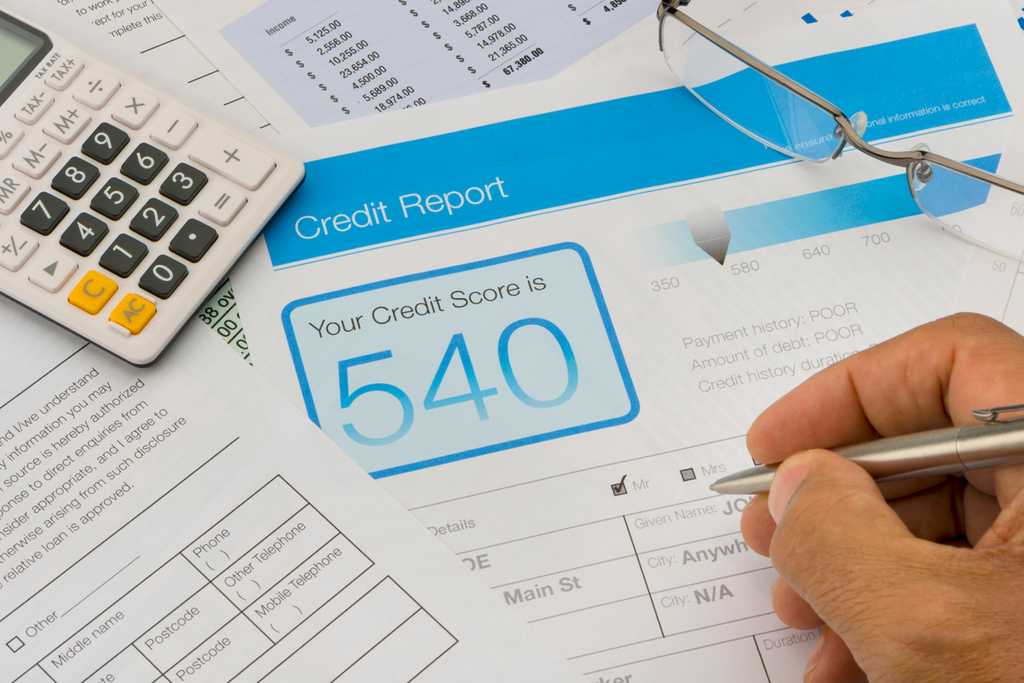If you are looking over your credit reports and you run into reporting or data that seems incorrect, you could very well be right. With that in mind, you should take steps to dispute the error before it leads to damage to your credit score or other problems that could take years to resolve.
Fortunately, there are several steps you can take to find out if your credit reports are accurate and up-to-date. If you do find a problem within your credit reports, there's also a formal process that can help you get issues or errors fixed.
- Mistakes on credit reports are way more common than people think. According to a 2021 investigation by Consumer Reports, more than one-third of consumers found misreporting and other errors when looking over their reports.
- Consumers may never know about errors on their credit reports unless they check them for accuracy themselves.
- The website AnnualCreditReport.com lets anyone access their credit reports from the three credit bureaus — Experian, Equifax, and TransUnion — without paying for the privilege.
- According to the Federal Trade Commission (FTC), checking your credit reports is not only the best way to find errors – it's also one of the best ways to spot identity theft.
How to Find Errors On Your Credit Reports
Before you worry about disputing errors on your credit reports, you should take steps to find out if all the information in your reports is accurate or not. You can do this by checking your credit reports with the three credit bureaus — Experian, Equifax, and TransUnion — using the website AnnualCreditReport.com. This site is the best resource for this step since it lets consumers check their credit reports for free once per week (through December 31, 2022).
Once you use this website to access your credit reports from all three bureaus, you should look for errors and misreporting that can lead to damage to your score. According to the Consumer Financial Protection Bureau (CFPB), some of the most common errors found on credit reports include:
- Incorrect information regarding your identity (i.e. wrong name or address)
- Accounts belonging to another person with the same or a similar name as yours
- Fraudulent accounts resulting from identity theft
- Closed credit accounts reported as open
- Being reported as the owner of an account where you're actually an authorized user
- Incorrectly reported late payments or delinquent accounts
- Incorrect date of last payment, date opened, or date of first delinquency
- Same debt listed more than once
- Accounts that appear multiple times with different creditors listed
- Accounts with an incorrect current balance
- Accounts with an incorrect credit limit
If you find these common errors on your credit reports, or any other errors you want to have corrected, you'll want to follow the steps below to have the situation rectified as soon as possible.
How to Dispute Errors On Your Credit Reports
The FTC notes that you'll need to dispute errors on your credit reports with the credit bureaus and the company that supplied the information. If you have an incorrect late payment on your credit report from your Chase credit card, for example, you would dispute that late payment with the credit bureaus that list it as well as with Chase.
Also be aware that you'll want to dispute incorrect information on your credit reports with any credit bureaus that report the false data. This could mean disrupting the information with all three credit bureaus, just two of them, or only one.
To dispute information on your credit reports, you should
- Explain in writing what you think is wrong, along with the reason it's incorrect
- Send printed copies of your credit report along with each mistake clearly identified (by highlighting or circling) and explained
- Send any proof that shows the information is incorrect
- Request that the incorrect information on your credit reports be removed or updated
- Include up-to-date contact information for yourself, including your name, address, and phone number
You can send the same information to both the credit bureaus that report the incorrect data and the company that reported it. Also note that the credit bureau may have their own dispute form you can send along, which you can find on each of the credit bureau websites.
Generally speaking, you should send your dispute request by certified mail and ask for a return receipt. That way, you know all parties received your request, and you can begin counting down the time until they're legally required to respond.
That said, the credit bureaus also let you dispute credit report errors online. In that case, you'll upload your dispute details and proof of the mistake through their online portals.
When it comes to disputing errors with the company that supplied the incorrect information (i.e. credit card companies, auto finance companies, etc.), you can mail their dispute using the address listed in your credit reports.
Disputing Errors with the Credit Bureaus
| Dispute Online | Dispute by Mail | Phone Number | |
|---|---|---|---|
Equifax | Download the dispute form Mail the dispute form with your letter to: Equifax Information Services LLC P.O. Box 740256 Atlanta, GA 30348 | (866) 349-5191 | |
Experian | Download the dispute form Mail the dispute form with your letter to: Experian P.O. Box 4500 Allen, TX 75013 | (888) 397-3742 | |
TransUnion | Download the dispute form Mail the dispute form with your letter to: TransUnion LLC Consumer Dispute Center P.O. Box 2000 Chester, PA 19016 | (800) 916-8800 |
How Does the Dispute Process Work?
After you file a dispute with the credit bureaus, they have 30 days to investigate your claims and provide you with a response. They can stop investigating and deny your claim if they believe it to be frivolous or irrelevant, notes the FTC. However, they are legally required to respond to your claim and notify you of their decision either way.
The credit bureau you dispute with will also send the information on your dispute to the business that reported it, who are then required to investigate and report their own results.
If the disputed information is indeed incorrect, the business must notify all three credit bureaus so they remove it or update your account. The business must also notify you in writing and give you a free copy of your credit report.
Per the FTC, the business must also send notices of the corrections that result from your dispute to anyone who received your credit report in the last six months. They must also send updated copies to anyone who requested your credit reports for employment purposes within the last two years.
If the investigation does not ultimately resolve your dispute, the FTC says you can ask that a statement of your dispute be included in your credit profile.
Dealing with Your Dispute Outcome
After you dispute an error on your credit reports, there are three potential outcomes that could come into play:
- Incorrect information will be corrected on your credit reports
- Information you disputed that cannot be verified will be updated or deleted
- Your dispute will be denied because the information you object to is accurate
In any case, you should know that disputing information on your credit reports does not have any direct effect on your credit. In other words, filing a dispute that winds up being denied won't hurt your credit in any way.
However, having certain types of incorrect information removed or updated can definitely improve your credit score in a significant way. For example, removing incorrect late payments on your credit reports could increase your credit score dramatically, as could having a false delinquent account removed from your report.
Either way, your best bet is monitoring your credit reports faithfully, which means taking the time to look over each of your reports every few months or at least a few times per year. Doing so is the best way to uncover mistakes that could harm your credit score, as well as the early signs of identity theft, which typically include someone pretending to be you and opening accounts in your name.
When you do find errors on your credit reports in the future, you'll feel comfortable knowing the dispute process is rather easy and straightforward. Taking steps to maintain your good credit score is also well worth the trouble, and you'll be glad you did when you need it.

